Laboratory diagnostics
Laboratory diagnostics includes various examinations that allow obtaining of the most accurate clinical data on the patient’s health state. Wide range of laboratory techniques gives the possibility to detect pathological changes in a human body at early stages. The data received during laboratory diagnostics are used in diagnosing, and also are the basis for monitoring the course of the disease and prescribed treatment efficacy.
Laboratory diagnostics is performed with the following goals:
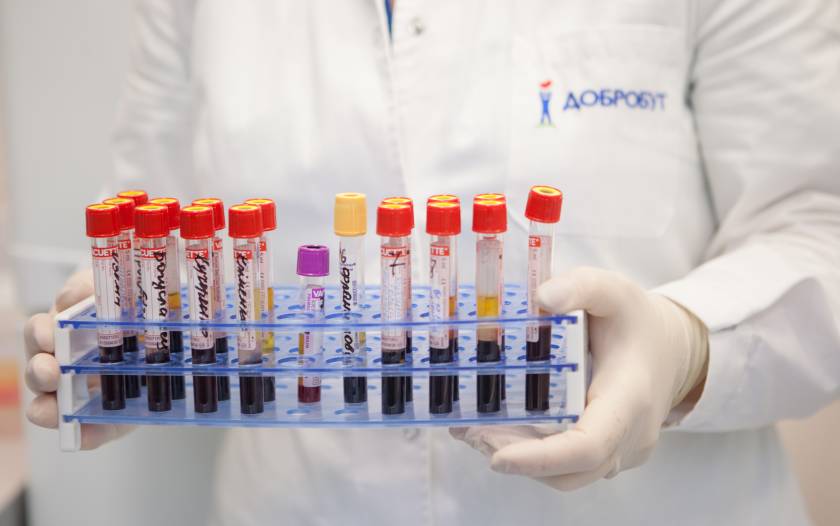
- diagnosing;
- studying of organ and system functions;
- detection of pathological changes at any stage;
- control of the course of the disease;
- assessment of therapy efficiency.
Various laboratory techniques are used for study that allows determining what does not work as it should in a human body and why it is so, detecting a pathogen in case of an infectious pathology, and predicting the efficiency of treatment with certain medications.
Dobrobut clinic chain gives the possibility to undergo laboratory tests in the following areas:
- general clinical;
- hormonal and biochemical;
- bacteriological;
- diagnostics of infections, autoimmune, oncological, allergic diseases;
- assessment of genetic predisposition and risks.
General clinic diagnostics
Infection diagnostics
Laboratory diagnostics provides information on the patient’s health state based on various types of examinations:
- quality (structure), that help to study cell shape and composition and obtain chemical characteristics (for example, presence of urine protein);
- quantitative: point to the concentration of chemical compounds and provide information of the quantity of certain cell elements and the proportion of structurally interrelated elements (for example, albumin-globulin ratio);
- functional: are performed for studying of biochemical characteristics (for example, glucose tolerance test, creatine clearance, etc.) and cell development and maturation cycle.
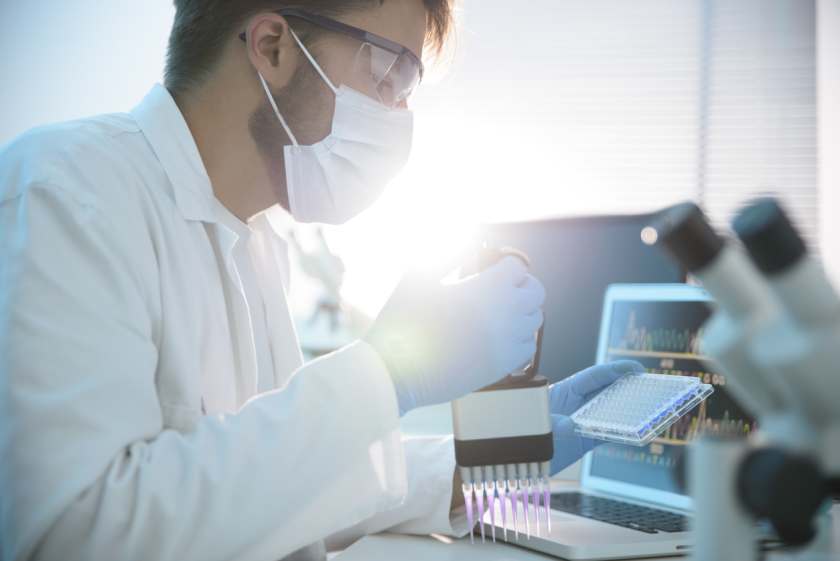
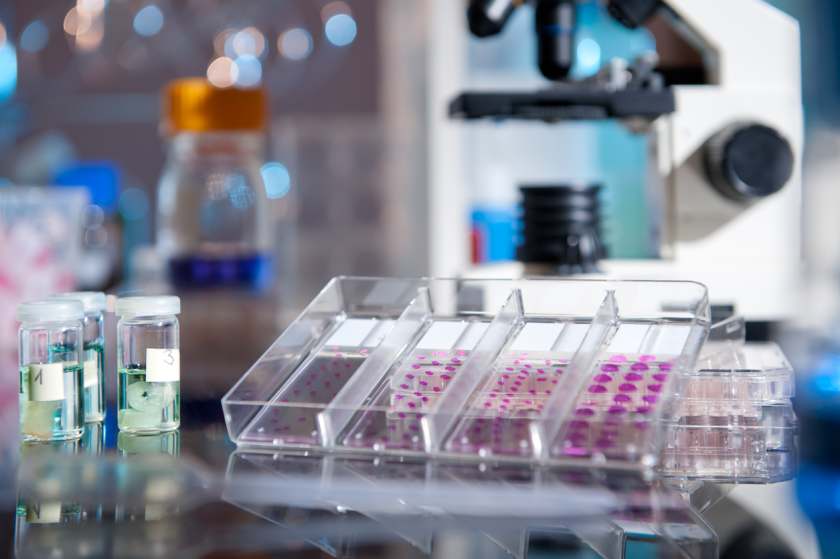
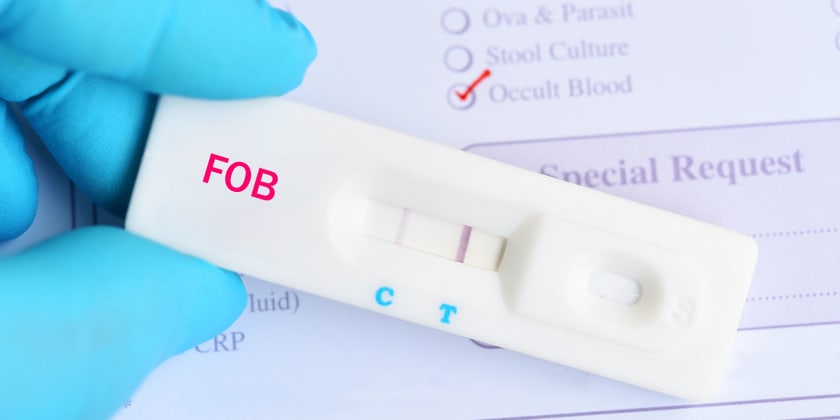
Which examinations we perform
We perform more than 1000 various laboratory tests in many areas: general clinical, biochemical, virological, bacterial and immunological.
Biochemical examinations:
- biochemical examinations;
- hemostasis examinations;
- assessment of hormonal status;
- diagnostics of autoimmune diseases;
- diagnostics of infections;
- detection of tumor markers.
General clinical examinations:
- medical biochemistry (general biochemical examinations, hemostasis examination, assessment of hormonal status, detection of tumor markers, diagnostics of infections and autoimmune diseases);
- hematology, immunohematology included;
- general clinical examinations (of urine, stool, ejaculate, expectorations, discharge from male and female genitalia);
- cytology (oncocytology);
- parasitology.
Immunological:
- assessment of immunological status;
- allergy diagnostics;
- autoimmune diagnostics.
Bacterial and virological:
- bacteriological examinations of pyoinflammatory diseases of various organs and systems;
- extraction of microorganisms from biological materials, their identification and determining of antibiotic sensitivity using both classical approaches and automated microbiological system;
- detection of infectious agents using PCR (diagnostics of hepatites, TORCH infections, sexually-transmitted infections);
- assessment of genetic predisposition to diseases.
Preparation for diagnostics
Quality of test results depends on implementation of preparation rules. That is why it is necessary to adhere to preparation rules with the exception of cases when you have different recommendations from your doctor.
Apart from the common rules, there are important recommendations and special aspects of examination process, and it would be better to know them in advance.
Rules for the preparation for the most common types of laboratory tests
Venous blood test
Standard conditions: in the fasted state, 8 hours after the last meal, unless the doctor indicated otherwise. You can drink water.
Special conditions for certain tests:
- it is recommended to take blood tests for adrenocorticotrophic hormone, cortisol not later than 10 AM;
- it is recommended to be emotionally and physically calm (to remain seated for 30 minutes) before the blood test for vasopressin, cortisol, somatotropic hormone and adrenocorticotrophic hormone;
- it is recommended to stay in horizontal position for 30 minutes before the blood test for adrenalin, noradrenaline, free methoxyamines (metanephrine, normetanephrine);
- women have to indicate the day of the menstrual cycle or period of pregnancy for reproductive panel tests to take hormone fluctuation cyclicity into account.
Urine tests
There are various types of urine tests:
- clinical urine test;
- Nechiporenko urine test;
- bacteriological urine tests;
- PCR urine test for infections;
- biochemical and hormonal urine tests.
Different types of tests require different types of preparation, however, there are common recommendations:
- urine can be collected in a container with additive or without it;
- if the urine is collected without additive (in a sterile container), the test is performed within 2 hours;
- if the urine is collected in a vacuum container with an additive, the test is performed within 24 hours.
It is important to remember: there are time limitations of 2 hours for some examinations.
Hygiene procedures of external genitalia are required before the collection of biological material.
Collection of urine to a container for the majority of tests is performed at home.
Urine can be collected as follows depending on the test:
- first void urine;
- 24-hour urine;
- occasional portion.
Rules of urine collection:
- the first portion after awakening should be collected for the morning portion;
- urine collected at any time of the day can be used for occasional portion;
- the first morning urination goes to the toilet when you collect 24-hour urine. Then all the urine within 24 hours (for example, from 9 AM to 9 AM of the following day) is collected in one clean container. In the process of collection all the urine should be kept in a cool, light-proof place (for example, in a fridge at the temperature of 4–8 °С). It is mandatory to indicate the total volume of urine within 24 hours. At the end of 24 hours all the collected urine is mixed thoroughly, and 30–40 ml of it are separated into other container.
For the majority of tests the urine should be delivered to a laboratory within 2 hours.
Urogenital examinations
24 hours (better 48 hours) to the examination sexual encounter and use of any intravaginal agents, tampons, spermicides, vaginal douching, gynecological examination (colposcopy an/or a manual check-up) should be excluded.
Refrain from urination for 2 hours. It is important to remember: the examination does not require additional consuming of liquids and filling of the urinary bladder.
Biological materials should be sampled before the treatment or not earlier than 21 hours after the end of the course of antimicrobial, antimycotic therapy (if your doctor has not indicated otherwise).
You should adhere to the following rules for the Pap test with liquid-based cytology:
- sampling should be performed from 10th to 20th day of the menstrual cycle (if the cycle lasts 28 days) and not later than 5 days to the estimated beginning of the period;
- Sexual encounter and use of any intravaginal agents, tampons, spermicides, vaginal douching, gynecological examination (colposcopy and/or a manual check-up) should be excluded for 24 hours (better 48 hours).
Stool test
Stool test may be performed with various goals, and there are several types of its examination:
- PCR test
If you use a bed pan (a night vase), it should be thoroughly washed with a sponge and soap before use, rinsed with tap water several times, poured with boiling water and cooled. For newborn babies, the stool is sampled from a diaper (a disposable diaper).
- Bacteriological test
The material for the bacterial culture test for the identification of Staphylococcus (S. aureus), mycology (Candida) should be collected not earlier than 14 days after the end of the course of therapy: antimicrobial, antimycotic or probiotic therapy, unless the doctor indicated otherwise.
Do not take locally applied medications (unless the doctor indicated otherwise) within 24 hours before sampling of biological material.
- Cytological examinations
Biological material for detection of feces occult blood (hemo-globin and transferin) should not be sampled under the following conditions: during the period, bleeding hemorroids, blood in urine or after significant efforts for defecation.
The examinations should not be performed within 2 weeks after gastrointestinal instrumental examinations or medical procedures that can cause mechanical abnormalities of mucous membranes (for example, colonoscopy, rectoromanoscopy, evacuation of the feces using an enema, etc.).
Other stool tests are mainly performed without any special preparation.
The stool is sampled after a spontaneous defecation, it should not contain extraneous matters such as urine, disinfectants, etc.
The stool for the test is not collected after an enema, application of rectal suppositories, taking of evacuants or colorants, castor oil or liquid paraffin, belladonna infusion, pilocarpine, iron, bismuth, barium supplements, etc.
Recommendations:
- avoid administration of drugs that change the stool composition and provoke functional gastrointestinal disorders 2–3 days before the stool sampling;
- buy a stool collection container to collect stool by yourself: you can buy a sterile container for stool collection in any DILA department or in a drugstore;
- you can buy a special (non-sterile) container for stool collection in a drugstore;
- the container should be delivered within 2 hours after the stool collection.
Other biological materials (from oropharyngeal/nasopharyngeal cavity, eyes, ear, bronchial washing, etc.)
Bile, expectorations, bronchial washing for bacteriological examinations are delivered in a sterile plastic container with a screw cap.
The material from the eye is delivered in a special container with AMIES transport medium (you should buy a separate container for each eye).
The material from the ear is delivered in a special container with AMIES transport medium.
The material from the gingival pocket is delivered in a special container with AMIES transport medium.
Sampling from an oropharyngeal/nasopharyngeal cavity (bacterial swab, scrape, etc.) is performed in the fasted state or 2 hours after a meal. You should not rinse your mouth and throat, brush your teeth, smoke before the sampling. Do not use locally applied medications within 24 hours before sampling.
Materials should be collected before the treatment or not earlier than 14 hours after the end of the course of antimicrobial, antimycotic therapy, unless your doctor has not indicated otherwise.
Spermogram
Restrain from sexual intercourse from 2 to 7 days. In the cases when these terms are disregarded, the test result will not be correct as its indicators cannot be compared with the benchmarks.
Re-examination also requires restraining from sexual intercourse from 2 to 7 days.
You should withdraw from any alcoholic beverages, taking of sleeping pills, sedatives, strong drugs, etc.
You should avoid warming of the area around the genitalia within 24 hours (restrain from visiting sauna, bath house, taking a hot bath, using of seat heaters in a car).
The examination is performed not earlier than 2 weeks after general urinary tract diseases, acute cold-related and other diseases accompanied with the body temperature rise.
Avoid high physical activities and stresses the day before and at the day of the examination.
It is important to collect all the ejaculate (every drop of it) as:
- the first portion contains the biggest number of sperm cells;
- it will allow precise detecting of the ejaculate volume in general.
More about services
Advantages of Dobrobut clinic chain
Service packages
Choose the nearest clinic
ISO certificates
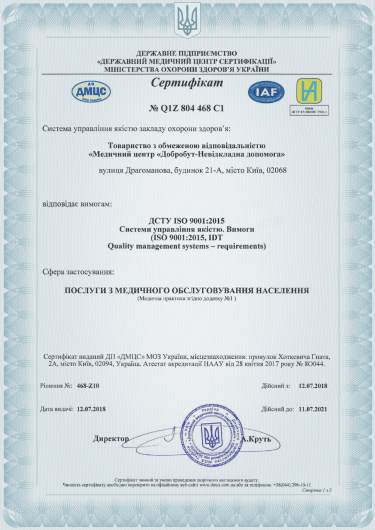
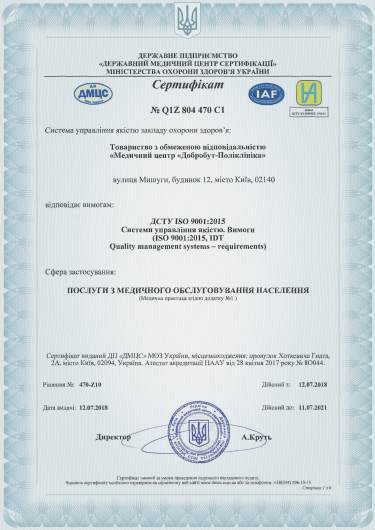
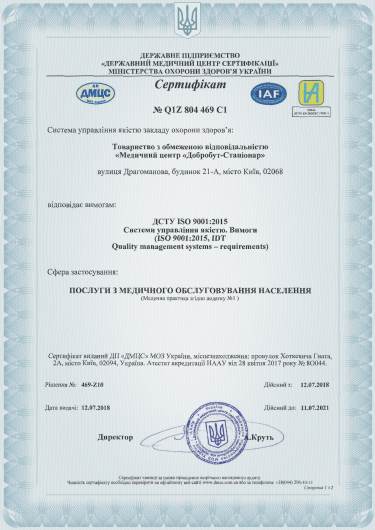
Accreditation certificates
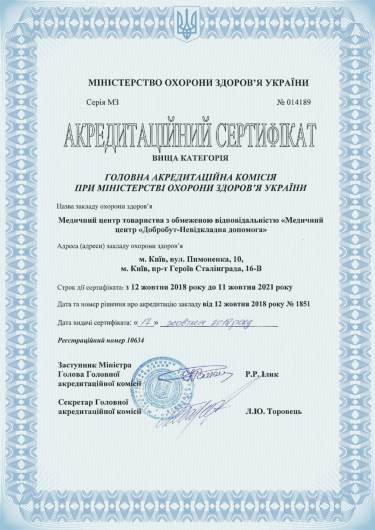
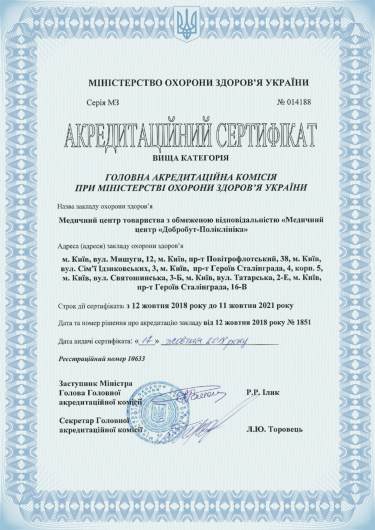
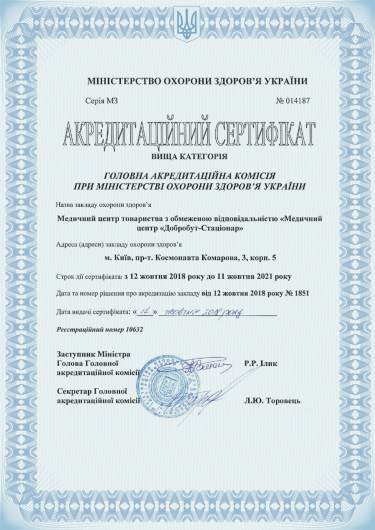
Medical practice licenses
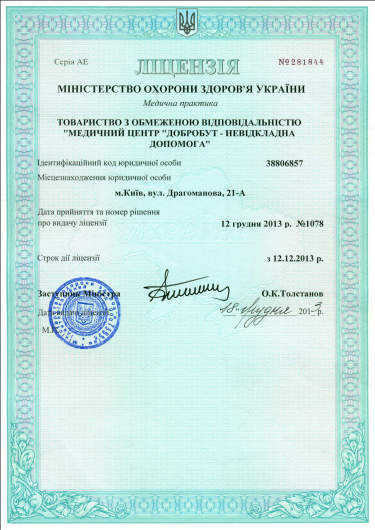
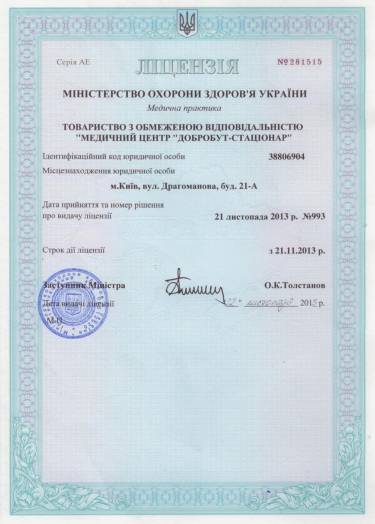
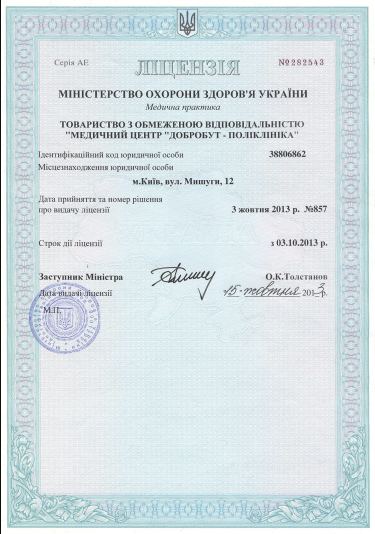
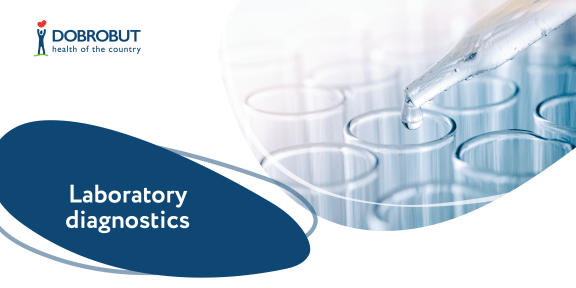

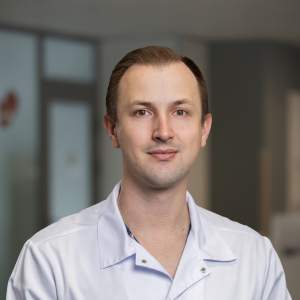

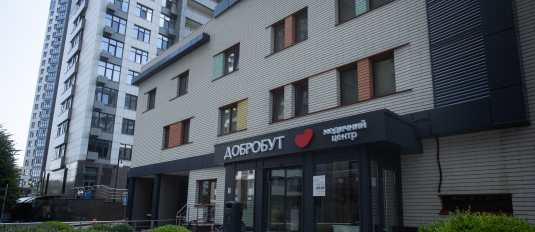
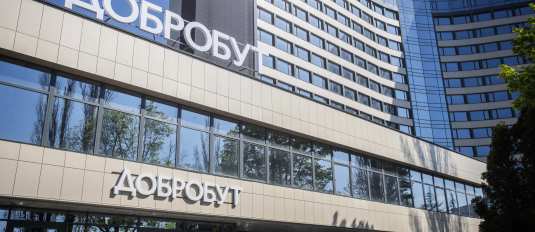
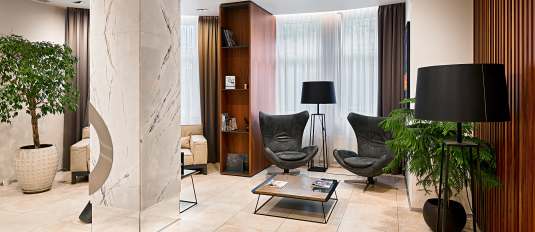
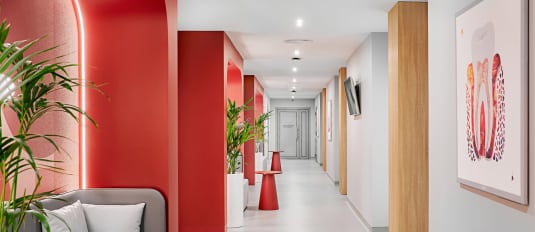
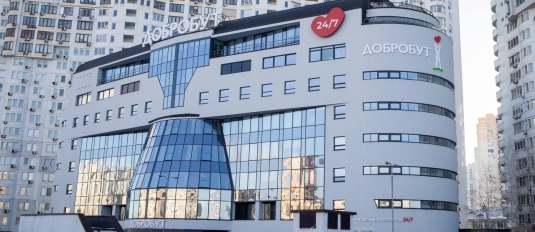
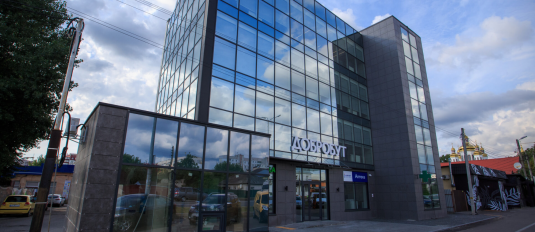
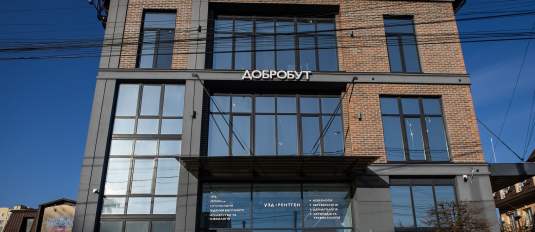

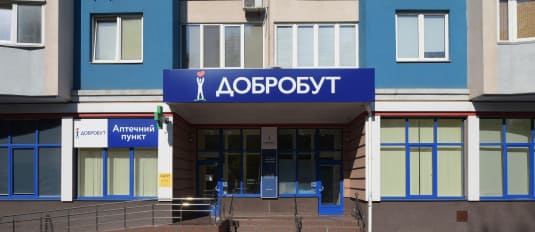

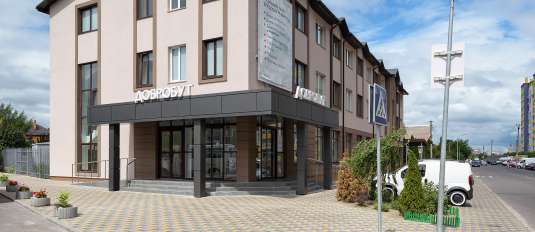
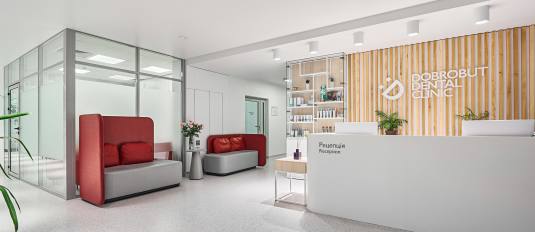


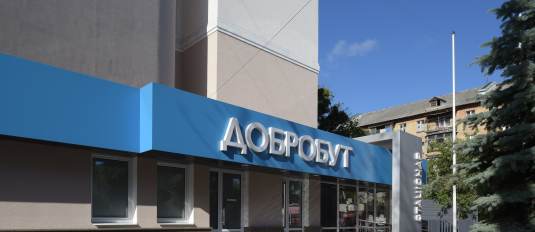

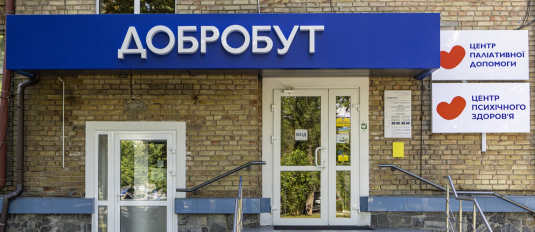
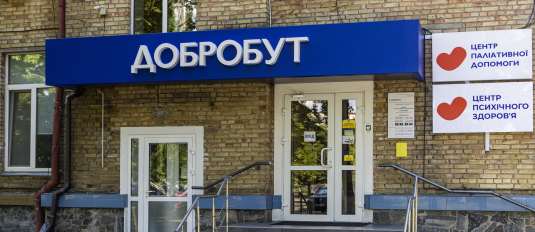
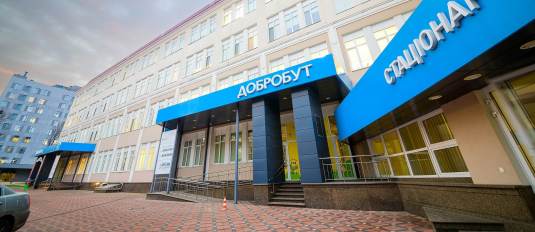


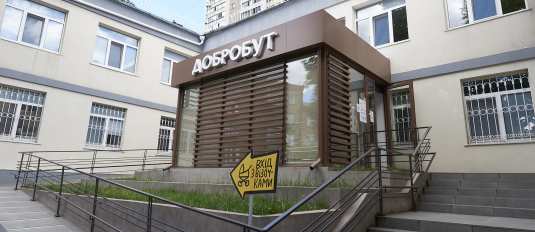
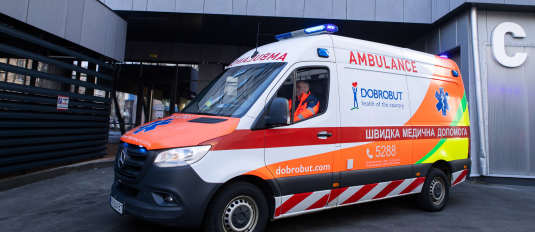
%402x.png)
%402x.png)
